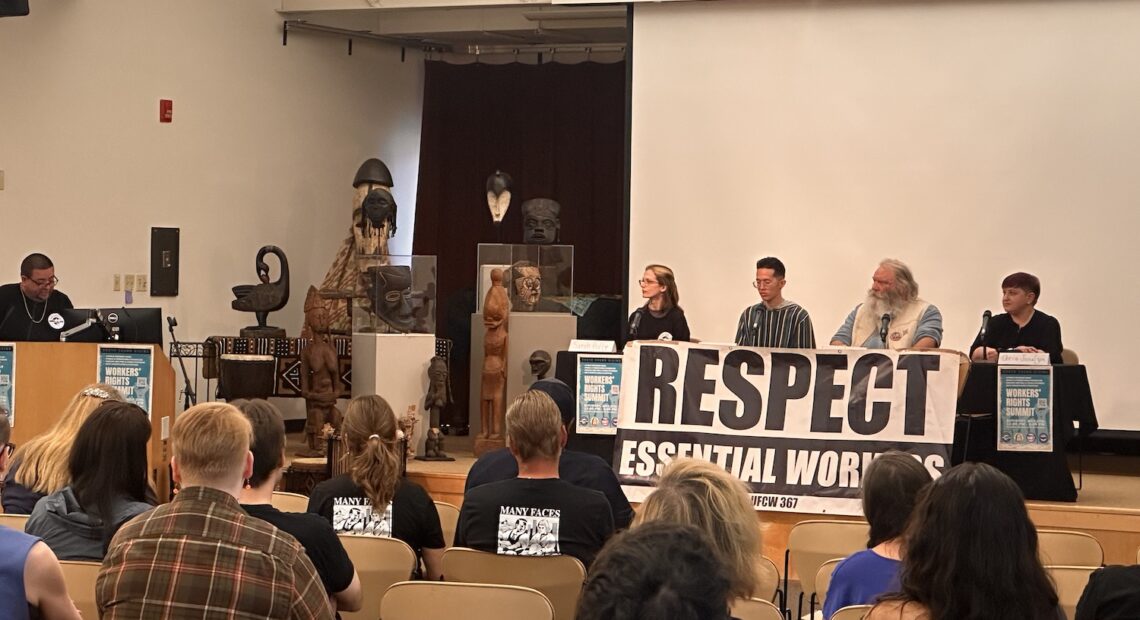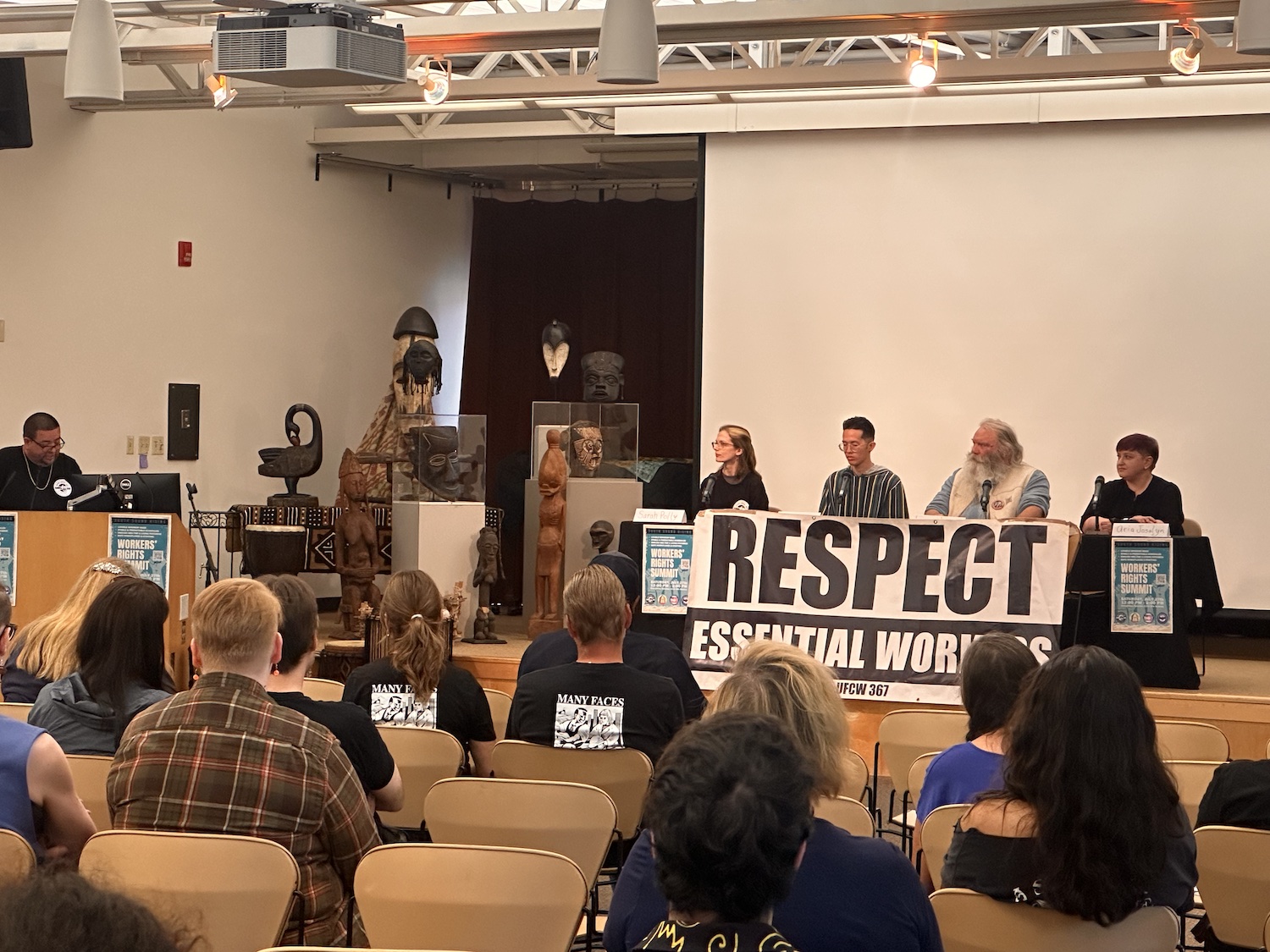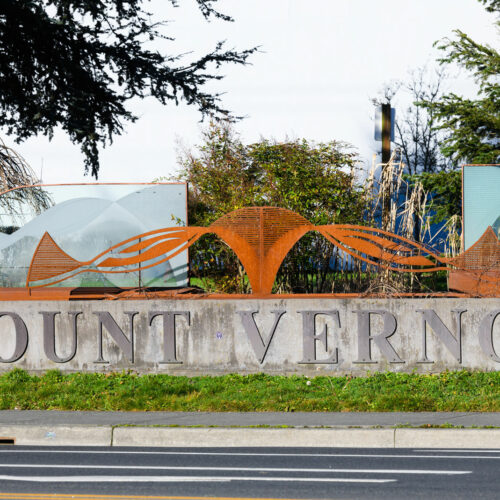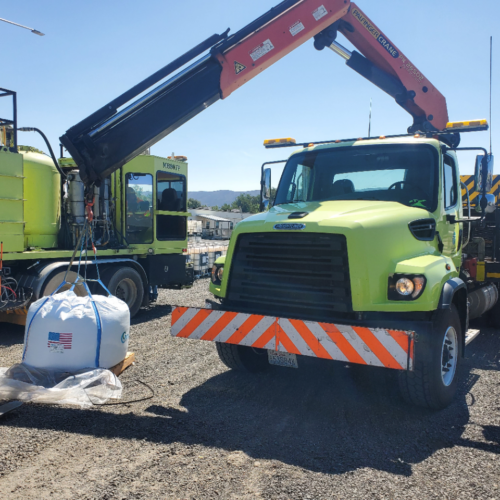
Federal trial over grocery chain merger begins in Oregon
Listen
(Runtime 1:02)
Read
In Portland, Oregon, a federal judge is set to hear arguments this week in a case brought by the Federal Trade Commission against the proposed merger between the two grocery store chains, Kroger and Albertsons.
Before the hearings, a coalition of grocery store workers represented by United Food and Commercial Workers shared their opposition to the merger at a press conference, according to a press release from the group.
“I am proud that our local unions have stood up and raised our concerns about this proposed merger from the very beginning,” said Kyong Barry, who works at an Albertsons’ Safeway store outside of Seattle. “Our ability as unionized workers to negotiate a better contract is at stake with this merger. It must be stopped.”
Earlier this month, U.S. Sen. Maria Cantwell, a Democrat from Washington state, joined other members of Congress in filing an amicus brief opposing the merger. Washington is one of the states that would be most impacted by the merger, she said.
As chair of the Senate Committee on Commerce, Science, and Transportation, Cantwell said she is concerned the merger would mean less competition in the marketplace.
“If we do that, then consumers and workers might get the short end of the stick,” Cantwell said.
An announcement released by the companies attempting to merge detailed which stores the companies would divest if the merger were to go through. It lists over 100 stores in Washington.
“In other parts of the country, the company that has been designated as a divestiture buyer has basically taken over some of these operations, closed them only to then open up again with non-union individuals,” Cantwell said.
If the Kroger and Albertsons merger were to go through, the divested stores would be operated by the wholesale grocery company C&S Wholesale Grocers. Cantwell said the company is not positioned to run retail stores. She fears what would happen to pharmacies inside those grocery stores.
Lauren La Bruno, vice president of communications for C&S Wholesale Grocers, said over email that the company is not open to interviews at this time.
“C&S will recognize the union workforce and maintain all collective bargaining agreements. We are committed to retaining frontline employees and further investing in growth,” La Bruno wrote in a provided statement. “C&S is well prepared to successfully operate these stores for many generations to come.”
The fear of how the merger could impact jobs is on the mind of local labor leaders. Zaid Velasco is the lead union representative with United Food and Commercial Workers Local 367, which represents workers in the South Sound. Velasco described the potential merger between Kroger and Albertsons as scary.
While he said the companies have said the merger would honor union contracts and that the companies wouldn’t close stores, Velasco said nothing is official.
“All that stuff has been verbal and released to the public, but none of it is official,” Velasco said. “None of it has been in writing. They haven’t even sat down and bargained with us.”
Last week, Kroger filed a lawsuit against the Federal Trade Commission, alleging that the attempt to stop the merger is unconstitutional.
At time of publication, Kroger had not responded to requests for interviews.
An Albertsons spokesperson, Brendan Geraghty, sent over a written statement, which read in part, “We are disappointed that the FTC continues to use the same outdated view of the U.S. grocery industry it used 20 years ago, and we look forward to presenting our arguments in Court.”
According to Albertsons’ statement, the merger would “expand competition, lower prices, increase associate wages, protect union jobs, and enhance customers’ shopping experience.”
“I don’t think until everything is decided that we’re ever going to give up fighting for whatever is best for them,” said Laura Christensen, a special project organizer working in community and political organizing.
While the merger hangs over head workers, UFCW Local 367 has other labor issues on the docket it’s seeking to fix, including appropriate staffing numbers.
Christensen has worked at Fred Meyer, where she would often work more than eight hour days to help others get their work finished, as they all got stretched with additional tasks and responsibilities.
“I would regularly get there, if I’m closing, I would get there at 3:00 and stay until like 1:30 a.m. And take half a lunch, maybe, and it’s still like you don’t get everything done,” Christensen said. “There needs to be a bigger team. It’s just not something that one person can do.”
The local is leading a campaign right now around eliminating short-staffing, something members are hoping to prioritize in contract negotiations next year as well as enshrine in worker protections through county initiatives next fall.
Christensen is leading efforts for the worker bill of rights initiative for the local. Its four main priorities are raising the minimum wage, giving current employees full-time hours before hiring new people, scheduling two weeks in advance and maintaining safe levels of staffing. The coalition behind the initiative has yet to create a draft.
















